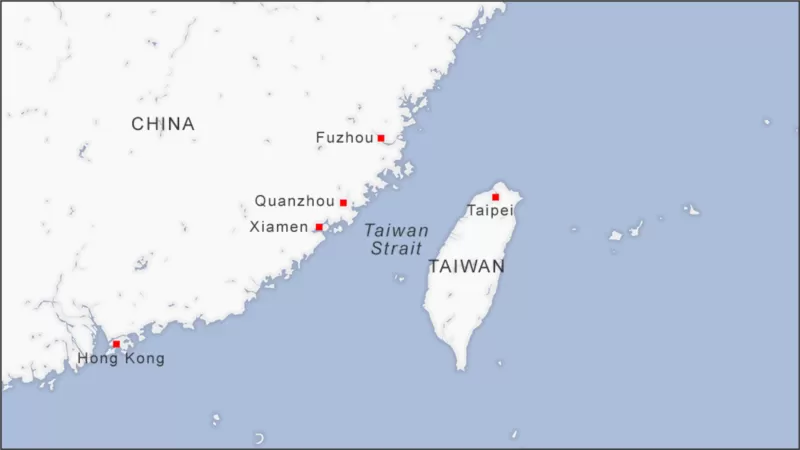TAIPEI, Taiwan – The tensions between China and Taiwan have once again escalated as China sent a large number of military aircraft and navy ships towards the self-governing island on Saturday. In response, Taiwan’s defense ministry has announced that it has been closely monitoring the situation and has taken necessary measures to protect its sovereignty.
The Chinese People’s Liberation Army (PLA) reportedly sent a total of 33 warplanes, including SU-30 fighters, and six navy vessels towards Taiwan’s airspace between 6 a.m. on Friday and 6 a.m. on Saturday. Out of these, 13 aircraft crossed the midline of the Taiwan Strait, which is an unofficial boundary between the two territories. Taiwan has responded by deploying its own forces to safeguard its airspace and territory.
This military activity from China comes at a time when senior American and Chinese representatives are expected to meet in Bangkok to discuss ways to ease the tensions between the two countries. The meeting between the U.S. national security adviser Jake Sullivan and Chinese Foreign Minister Wang Yi is seen as a positive step towards maintaining strategic communication and managing the relationship between the two superpowers.
China has long considered Taiwan as a part of its territory and has been known to express its displeasure at any political activities in Taiwan through military posturing. In the past, China has sent warplanes and ships towards Taiwan during significant events such as elections, to show its disapproval. The recent military actions can be seen as a response to Taiwan’s presidential election, which saw Lai Ching-te from the Democratic Progressive Party being elected as the new president. The party campaigned on self-determination, social justice, and a rejection of China’s threats.
The meeting between the U.S. and Chinese representatives in Bangkok is significant as it reflects the commitment made by President Joe Biden and Chinese President Xi Jinping to maintain strategic communication and responsibly manage the relationship between the two countries. This meeting is crucial in addressing various economic and geopolitical issues that have been a source of tension between the two nations.
In a statement, U.S. National Security Council spokesperson Adrienne Watson said, “The planned meeting in Bangkok continues the commitment Biden and Xi made to maintain strategic communication and responsibly manage the relationship.” This meeting is expected to touch upon China’s position on Taiwan, as well as issues related to international and regional concerns.
China’s foreign ministry spokesperson, Wang Wenbin, also commented on the upcoming meeting, stating that Foreign Minister Wang Yi will “make clear China’s position on Taiwan and U.S.-China relations, and discuss international and regional concerns.” This meeting is crucial for both countries as they navigate through various international issues, including the recent tensions in the Red Sea.
The situation in the Red Sea has disrupted global trade, with many shippers having to avoid the Suez Canal due to tensions caused by the Iran-backed Houthi rebels. China has expressed its commitment to de-escalating the situation and has been making positive efforts in this regard. As a responsible global player, China understands the importance of maintaining peace and stability in the international waters.
In conclusion, the recent military activities by China towards Taiwan have once again highlighted the need for maintaining open and transparent communication between the two countries. The meeting between the U.S. and Chinese representatives in Bangkok is an encouraging step towards achieving this, and it is hoped that it will pave the way for better relations between the two nations. It is in the interest of both countries to address their differences through peaceful and diplomatic means, while also working towards common goals for the benefit of the region and the world.

